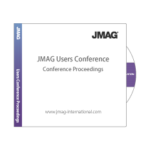Koen Vansant
LMS International N.V
概要
Electric motors are key to all alternative electric propulsion solutions, from hybrids to fuel cell and battery EV. Research and development efforts in this area are driven by demands for performance in terms of power, efficiency, comfort and reliability, and increasingly by the need to reduce the raw material costs associated with magnetic materials. To this end the switched reluctance motor, benefiting as it does from the absence of any rare earth materials in its construction, is attracting much attention and interest from the automotive industry. The drawbacks to using this type of motor in an automotive application are known to be its complex control requirements and relatively high levels of acoustic noise, as compared to permanent magnet motor types. Controlling the NVH behavior is hence a prerequisite to achieve a competitively viable solution.
A process for simulation-based acoustic noise optimization of SR motors (and by extension any other electric motor) has been developed and validated. It combines a functional 1D Multi-physics model of the motor including its control system, this can be used in isolation or in combination with a full vehicle model including driving profiles and motor operating maps to allow the user to analyze motor performance in realistic vehicle operating conditions. A 2D electro-magnetic finite element code converts the flux results into forces and surface vibrations on the stator, the vibration results are the input to a 3D Vibro-acoustic Finite-element analysis which allows calculation of the acoustic response in the frequency or time domain. This paper explains the methodology used, and, via examples of concrete analysis studies carried out. It also sets out to demonstrate the benefits that can be obtained from analyzing the acoustic performance as a full function of the control and mechanical design elements of the switched reluctance motor within a combined optimization process.
『JMAGソフトウェア正規ユーザー(有償会員)』または『JMAG WEB MEMBER(無料会員)』でサインインが必要です。
『JMAG WEB MEMBER(無料会員)』へ登録することで、技術資料やそのほかの会員限定コンテンツを無料で閲覧できます。
登録されていない方は「新規会員登録」ボタンをクリックしてください。

